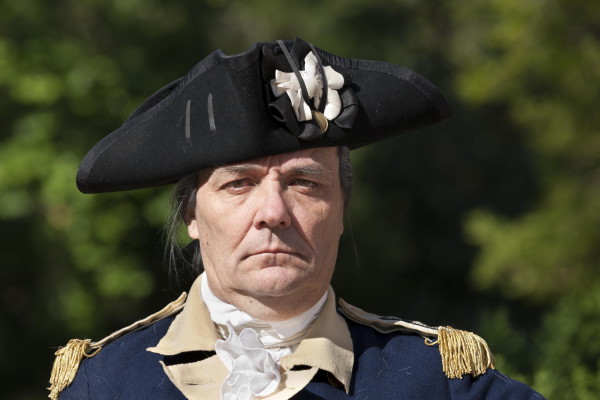 George Washington has been a figure shrouded in myth since before Parson Weems first spun his tale about the cherry tree in 1806. We’ve become more savvy about recognizing the stories that are more fable than fact in recent years. But there must be some popular misconceptions we have about our first president.
George Washington has been a figure shrouded in myth since before Parson Weems first spun his tale about the cherry tree in 1806. We’ve become more savvy about recognizing the stories that are more fable than fact in recent years. But there must be some popular misconceptions we have about our first president.
We asked Ron Carnegie, who has been interpreting George Washington for more than a decade for Colonial Williamsburg, to name some of the common misunderstandings that crop up when he talks with the public.
Carnegie’s first-person presentation is based on extensive and ongoing research into the life and personality of Washington. “Before I use it, I have to document it,” he says.
Here, then, are the five that made his list:
#1 He was not a commissioned regular officer
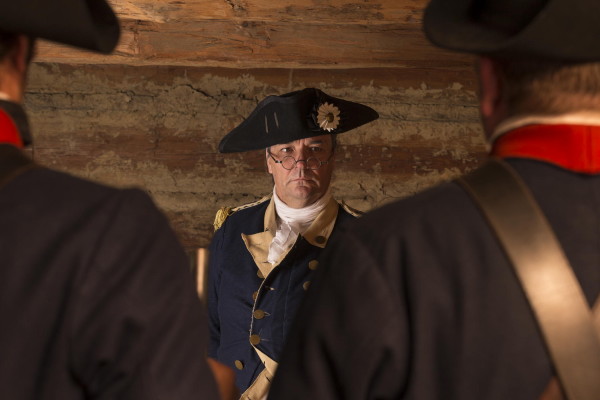 It might seem like a semantic distinction, but many people believe that Washington was a militia officer. He may not have had a royal appointment, but he was in command of regulars during the French and Indian War. He received his commission as a lieutenant colonel of the Virginia Regiment from Governor Robert Dinwiddie just before he turned 22.
It might seem like a semantic distinction, but many people believe that Washington was a militia officer. He may not have had a royal appointment, but he was in command of regulars during the French and Indian War. He received his commission as a lieutenant colonel of the Virginia Regiment from Governor Robert Dinwiddie just before he turned 22.
He valued his commission highly, and while he never received the royal commission he desired, he identified as a military man his whole life. And he made a strong distinction between being a professional soldier (as he was) and being a minuteman, a citizen-soldier who only took up arms in an emergency.
#2 He was overtly religious
Washington was extremely private with his religious beliefs. He certainly invoked the Creator many times, and his occasional expressions of tolerance for non-Christian faiths display a great respect for religion as a personal choice.
But sometimes Washington is held up as more overtly religious. Carnegie points to the example of Arnold Friberg’s famous painting “The Prayer at Valley Forge,” which portrays the Continental Army’s commander in chief on bent knee next to his horse during the winter of 1777-78. It is a scene that almost certainly never occurred. Furthermore, Carnegie says, it would be out of character. Washington was typically standing when he was observed praying. The popularity of this image of the prayerful Washington may say more about the traits Americans want to see in their hero than was actually the case.
#3 He was a leading American rebel
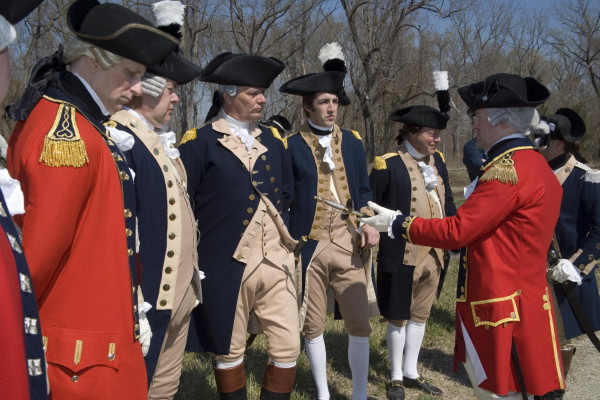 Washington was actually a pretty reluctant patriot, at least so far as declaring independence was concerned. Like many colonists, he was deeply concerned in the wake of measures like the Stamp Act in 1765 that the rights of Englishmen be defended. Americans in the colonies simply wanted to feel like they had the same rights. As late as August of 1775, Washington still wasn’t convinced that a permanent break was the right answer. “He’s no Patrick Henry or John Adams. He’s a conservative,” says Carnegie, at least in the classical sense of wanting to preserve the existing order.
Washington was actually a pretty reluctant patriot, at least so far as declaring independence was concerned. Like many colonists, he was deeply concerned in the wake of measures like the Stamp Act in 1765 that the rights of Englishmen be defended. Americans in the colonies simply wanted to feel like they had the same rights. As late as August of 1775, Washington still wasn’t convinced that a permanent break was the right answer. “He’s no Patrick Henry or John Adams. He’s a conservative,” says Carnegie, at least in the classical sense of wanting to preserve the existing order.
So while he came around to lead the Patriot cause on the battlefield, he was not a radical revolutionary.
#4 He said that about the government
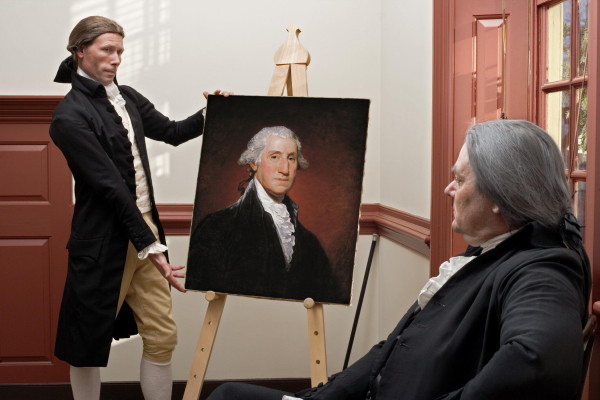 Like many founders, George has been subject to, shall we say, some revision. In our irresistible urge to place the founders on our side of some modern political debate, some have taken his words out of context or embellished them. Many of these new and improved quotations ping back and forth through cyberspace, being shared in emails or through social media. Fortunately, the Internet has also made it easy to learn the truth by locating the original documents.
Like many founders, George has been subject to, shall we say, some revision. In our irresistible urge to place the founders on our side of some modern political debate, some have taken his words out of context or embellished them. Many of these new and improved quotations ping back and forth through cyberspace, being shared in emails or through social media. Fortunately, the Internet has also made it easy to learn the truth by locating the original documents.
Carnegie points to one common example that is frequently invoked to prove Washington’s support for Second Amendment gun rights. In his first annual message to Congress, he said:
“A free people ought not only to be armed, but disciplined; to which end a uniform and well-digested plan is requisite; and their safety and interest require that they should promote such manufactories as tend to render them independent of others for essential, particularly military, supplies.”
But his support for an organized armed force has been altered to try to turn Washington into someone who favored an armed citizenry to challenge the government:
“A free people ought not only be armed and disciplined, but they should have sufficient arms and ammunition to maintain a status of independence from any who might attempt to abuse them, which would include their own government.”
Washington’s primary interest was in making sure the nation had adequate defenses, and he sure wasn’t advocating anyone taking up arms against the government. After all, this is the man who as president led a contingent of thousands of militiamen against a paltry group of anti-tax protesters in the Whiskey Rebellion of 1794.
#5 He was a cold fish
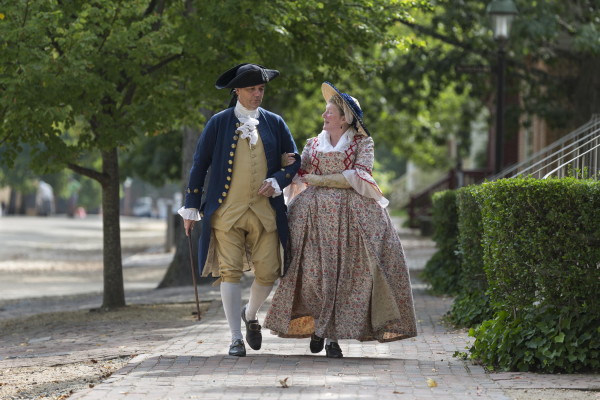 Washington was indeed stoic. He believed that a good soldier should have complete control over his emotions. But Carnegie says we shouldn’t mistake the absence of a gregarious personality for a lack of any internal feeling. His position meant that he constantly met new people, many of whom reported a lack of animation.
Washington was indeed stoic. He believed that a good soldier should have complete control over his emotions. But Carnegie says we shouldn’t mistake the absence of a gregarious personality for a lack of any internal feeling. His position meant that he constantly met new people, many of whom reported a lack of animation.
But while strangers found it difficult to pierce his formal bearing, he was much more open with family and friends. In one of the few surviving letters between George and Martha (she destroyed almost all of them after his death in 1799), George declares his “unalterable affection” for his wife. He shared tearful farewells with his officers when they parted after both the French and Indian and the Revolutionary Wars.
After the Revolution a visitor to Mount Vernon wrote, “The General with a few glasses of champagne got quite merry, and being with his intimate friends laughed and talked a good deal.” He apparently just really didn’t much care for smiling.
For many reasons, especially his famous reserve, the Father of Our Country is a tough nut to crack. But we keep trying.
George Washington continues to speak to us all as citizens today. Don’t miss his big announcement this morning at 11 inside the Kimball Theatre. No tickets needed. Just grab a seat and witness history!
UPDATE: For those of you who couldn’t join us, here’s a link to George Washington’s big reveal!
Participate. Debate. Vote.
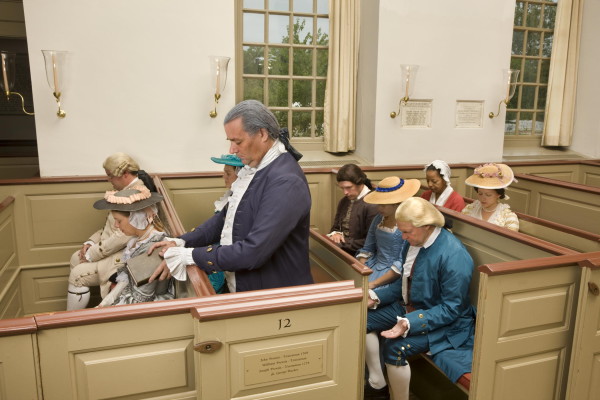
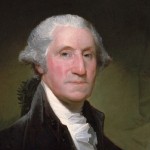
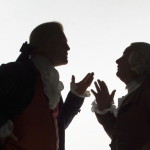
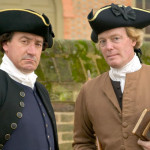
This is an honest quote from a known Liberal
Foolish liberals who are trying to read the Second Amendment out of the Constitution by claiming it’s not an individual right or that it’s too much of a public safety hazard, don’t see the danger in the big picture. They’re courting disaster by encouraging others to use the same means to eliminate portions of the Constitution theydon’t like.
Alan M. Dershowitz
I agree with the comments above about GW not being a total rebel. Both before and after the ‘Independence/Revolution’ George Washington and his family had many correspondences with friends and relatives in England - including those in my town. He would likely know that many English persons, even in Parliament, were sympathetic of the American complaint of no taxation without representation - even though distance would make this difficult to overcome. The Washington family continued to correspond with all they knew in England after the 1770’s and he had English businessmen join with him in business ventures such as the Dismal Swamp project. Seeing the actor playing the part of George Washington at Williamsburg’s theatre was a real treat when we came over ‘The Big Pond’ on an East Coast Heritage of America tour. Helen R
Thanks for sharing your thoughts. It’s always great to have a perspective from afar.